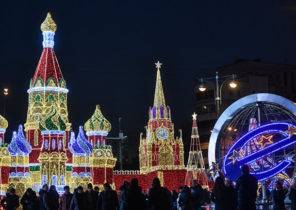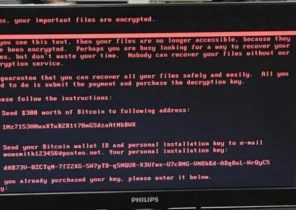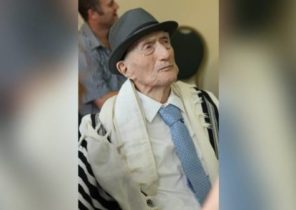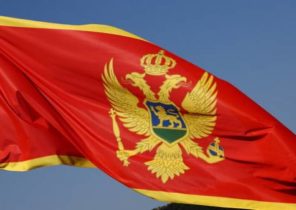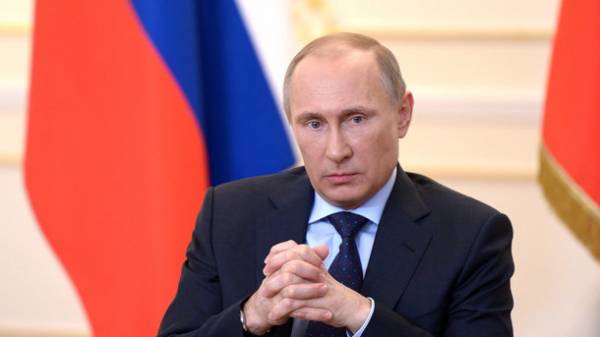
President Putin has placed in Syria of the unique Russian weapons – several units of the Chechen and Ingush commando hails from the troubled Russian North Caucasus. This in an article for Foreign Policy writes Neil Hauer, senior intelligence analyst with the SecDev Group (Canada), reports Inopressa.
“It’s expanding presence allows the Kremlin to increase its role in influencing events on the ground at the moment when he is “digging”, intending to remain here for long. Perhaps these forces will play a key role from the point of view containment of any actions of the Assad regime, which would be harmful to the wider interests of Moscow in the middle East, as well as provide the Kremlin a very efficient projection forces with reduced political costs”, – stated in the article.
“It is unclear what is the specific role and the exact number of new brigades of the Kremlin. The first reports of open sources places it was alleged that in December it was placed about 500 Chechens, according to some estimates, there were a total of 300-400 people.
There is evidence that the number of Ingush little less – about 300. Although they are called “military police”, these units, according to some, recruited from the elite spetsnaz forces in the Chechen armed forces and used in a role that goes far beyond the usual protection of the rear, common for these units on duty at checkpoints, the humanitarian aid, protection of bases and even coordinating the defense of Pro-government strongholds of the forces of the regime,” says Hauer.
“I guess it’s a sign that Moscow reluctantly recognises that mired in this quagmire,” says mark Galeotti, senior researcher, Institute of International Relations (Prague). “Used in a hybrid civil-military roles, are able to conduct operations of a wide spectrum, these teams became for the Kremlin a “lifesaver” in the deployment when it tries to assert itself in multiple theaters of war abroad”, – says Hauer.
According to the author, Moscow appreciates these teams are not only fighting capacity. In his opinion, the losses in Syria among the North Caucasian contingent is unlikely to provoke popular discontent in Russia as “the Russian society is deeply rooted resentment against the natives of the North Caucasus, especially Chechens, after two wars in the 1990s and the numerous terrorist attacks in the later period.”
“If we talk cynically, (Putin it would be much easier), if in Syria have killed Chechens or other Caucasus than people from other regions of Russia,” says Grigory Shvedov, editor of Caucasian knot.
The author finds another major advantage for Moscow: “the Natives of the North Caucasus – almost entirely Sunni Muslims, like the majority of the population in Syria.” Moscow is trying to use it to your advantage. “The Chechen military police were told to use common Muslim terms in order to establish a more friendly relationship with the population – to use a variety of religious epithets, welcoming locals during a patrol. The adoption of the ethnically-Russian military of Sunni Islam during a ceremony, committed to the Supreme mufti of Chechnya in the eyes of Syrians in Aleppo, was another public relations maneuver, which was based on the common religion of the Syrians, and these servicemen,” says Hauer.
According to the author, “North Caucasus special forces doing in Syria all the more important the task is and the security forces of the Syrian Kurds from the attacks of the Turks in Manbij, and ensuring the successful evacuation of the insurgents from the outskirts of Damascus as a result of negotiations.” Hauer believes that Russia seeks to expand its influence in key areas of Syria, especially in the context of periodic tensions with its Syrian and Iranian allies. The author gives an example: “According to some reports, Iranian officials were angry over the terms of the cease-fire in Aleppo, worked out in December 2016, under the mediation of Russia and Turkey without Iran’s participation. Later Iran deliberately broke the agreement using their Iraqi and Syrian “proxy forces” to resume the fighting in Aleppo. It is no coincidence that a few weeks after that to Syria profits the first Chechen fighters to Moscow.”
At the end of January, continued Hauer, when rumors spread that Assad stroke, there were reports that Iranian forces are preparing to bring to power his brother Maher, and Maher, “according to rumors, the Kremlin not listed in the list of preferred successors”. After a few days Assad returned to Damascus, and everything calmed down. “But the incident underlined how important it is for Moscow to have its ground forces in the Syrian capital,” writes the author.
The author also claims that Moscow uses in Syria of a private military company (PMC). “Initially, it was known as the “Slavic corps”. The first mission of this group in Syria in 2013 was a major setback, but after the group was rebranded and gained a more solid support of the Kremlin, she was again placed in Syria as an element of official intervention of Moscow in 2015. Now a group called “Wagner”, headed by Dmitry Utkin, a former officer of the GRU, which first launched PMCs in operations in Crimea and Eastern Ukraine”, – is spoken in article.
“The first stage of the “Caucasian adventure” in Syria ended March 27, when the Chechen military police returned home from the first trip,” – said in the article. “April 19, Kadyrov announced that Syria has just deployed a new unit of the Chechens,” writes the author.
“The Ingush battalion, meanwhile, continues to operate in Damascus, he was seen in the capital during April,” writes the author. “In the Damascus area of Jobar, where in March there was fierce fighting, the rebels, by some accounts, intercepted, which showed that some officers of the Ingush, as well as some of the remaining Chechens largely coordinated defense Pro-government forces in the area. According to some reports, the Ingush battalion will return home from a business trip in may,” the article says.
In conclusion, Hauer predicts: “the North Caucasian battalions, although their role is unlikely to expand much in the foreseeable future, will remain the leading teams in large-scale strategy to expand its influence in Syria.”
Earlier it was reported that in the United States doubt the Memorandum on the establishment of four security zones in Syria on the line of contact between government and opposition forces. In particular, the United States embarrassed by the fact that one of the guarantors of the Treaty is Iran.
